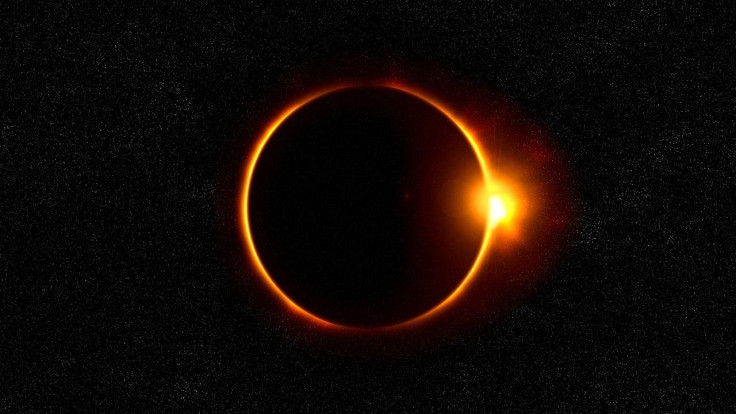Don’t Take A Total Solar Eclipse Selfie, Eye Doctor Warns

The 2017 total solar eclipse that is passing across the United States today could be a once-in-a-lifetime opportunity for a lot of people to see the moon completely block out the sun, but it’s best if they don’t commemorate the event by taking a selfie.
According to retina expert Dr. Tongalp Tezel from the Columbia University Medical Center, the sun’s rays could reflect off a phone screen and directly into your eyes, potentially doing damage without your having to look directly at it.
“Many people will think it’s safe to take a selfie with the eclipse in the background because they aren’t looking directly at the sun,” Tezel said. “What they may not realize is that the screen of your phone reflects the ultraviolet rays emitted during an eclipse directly toward your eye, which can result in a solar burn.”
People who look up at the sun or take in too many harmful rays might experience blurry vision, vision loss, or blind spots, and they may have trouble perceiving color. While those effects might go away over time, too much exposure to the sun’s radiation could permanently damage your vision.
“The last time a total solar eclipse was visible in the United States was 1979, well before the dawn of cell phones and the now-ubiquitous selfie,” the medical center said. “Sir Isaac Newton suffered retinal damage after looking at the reflection of an eclipse in the surface of a pond — the archaic equivalent of the cell phone screen.” He had poor vision for three days afterward, and his full sight did not recover for weeks. “Viewing the eclipse through a telescope can also damage the retina, as Galileo himself learned, because the device magnifies the sun’s harmful ultraviolet rays.”
For those who want to take care of their eyes, Tezel demonstrated the proper way to put on a pair of solar eclipse viewing glasses.
“Please carefully inspect whether there are any scratches or any breaks” before putting them on, he said. “Turn toward your shadow, put these things on, be sure that they are covering all your eyes and then turn around.”
He recommended that the viewer be looking down when turning toward the sun, then elevating the head.
Educating yourself about the effect of sunlight on your eyes could be the best way to protect them from harm while watching a solar eclipse. The medical center explained that even if looking at the sun doesn’t hurt or even if it is cloudy, it may still be doing damage to your retinas.
“Normally, you can only glance at the sun with the naked eye for a few seconds before your eyes start to well up,” according to the statement. “But when an eclipse casts its shadow, and your eyes are no longer wincing at the light, you may be tempted to gaze at this phenomenon for a long while. … It’s precisely when you can’t feel the burn that the sun’s ultraviolet rays can cause considerable retinal damage.”
© Copyright IBTimes 2025. All rights reserved.



















